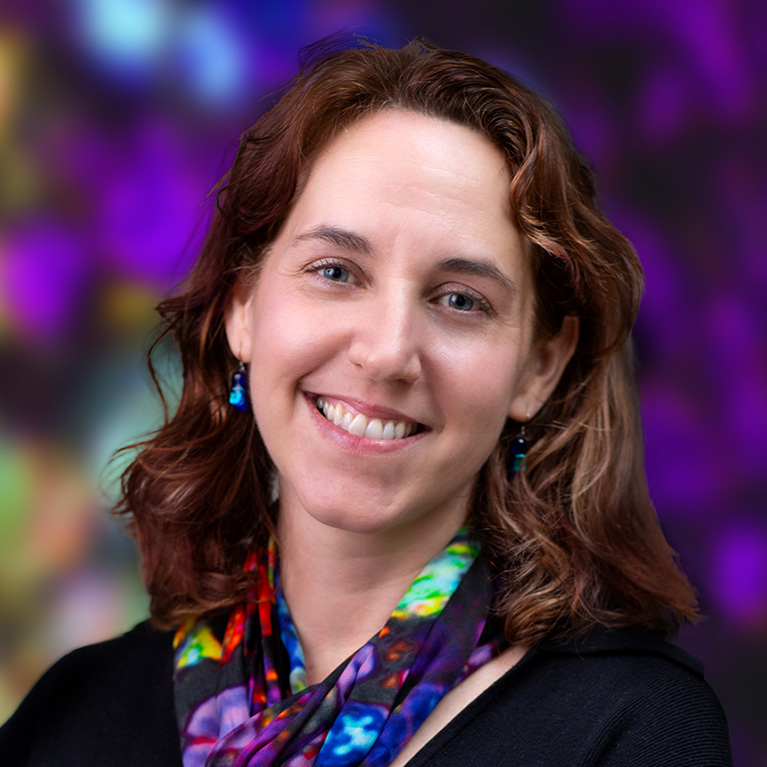What keeps me motivated
despite the constant strife
and challenges that we face in
sciences is the
pursuit of discovery.
And an understanding how
something works to provide
a very deep and
rich understanding
of how that process happens.
I'm Susan Kaech. I'm
the Director of
the NOMIS Center for
Immunobiology and
Microbiopathogenesis
at the Salk Institute.
I grew up in Washington State.
Olympia, Washington, actually
the capital of the state.
I went to school in Seattle,
and so I grew up in the
western part of Washington,
the rainy side of Washington.
My family was a very general,
typical family. I had a sister.
My mother, unfortunately,
died of breast
cancer when I was 17.
So that was quite a big shake
to your youth and
makes you think
a lot about different
aspects of how you live
your life when you lose
someone to cancer at that age.
The most important thing that
my parents and my family
instilled in me was the idea
that hard work
is what it takes
and that you can pretty
much do whatever you want.
I didn't know really
about social boundaries
and gender boundaries and
glass ceilings that existed
when I was growing up.
Our family lived in
a place where you
could pretty much do
whatever you set your mind to as
long as you worked really
hard to get there.
I always had a
knack for science.
My dad was actually
a biology teacher,
so I kind of had
interesting exposure
to science through the
lens of a school teacher.
My favorite classes
were physics and chemistry,
and I liked doing math homework.
My first job was at
Kentucky Fried Chicken,
and I didn't have a car.
As soon as I turned
15 and a half my parents said,
you need to have a job,
that's when you
can start to work.
So I had a job at 15 and a half
and I would drive
this little orange scooter
to Kentucky Fried Chicken,
and that's where I worked
for the summer.
In college I didn't really
have much exposure
to what you could
do as a scientist.
To me, being a scientist
wasn't really a
profession I knew about.
So I initially started off
actually majoring
in engineering.
It was somewhat of a
coincidence that I was
able to take a biology course
as an elective, actually,
my freshman year in college,
and that was where I
was first exposed to
genetics and cell biology.
My advisor, Charles Laird,
who came up to me,
he actually said, what grad
schools are you applying to?
And I was like, oh, I guess,
yeah, I hadn't really,
you know, thought about
grad school as an option.
I thought the traditional
route was to go into industry,
and he's like, oh, no, no,
you should go to grad school.
So that's when I
started thinking about
different graduate schools
I wanted to go to.
And I was very fortunate
that I was able to
attend Stanford University in
their Developmental
Biology program,
which is where I got my PhD.
In reflecting about where my
lab was going at the time,
as being an immunologist and
studying your immune system,
I was really starting to
stretch our research into
different areas and
intersections that
crossed into different
areas of science.
And the Salk Institute knocked
on my door and asked if I
would take a look at
this position to be the
Director of the NOMIS Center.
And I knew that
a more diverse
scientific environment
would be beneficial
to our research.
Their research is
focused on understanding
how our immune system functions
to protect us from
infection and other
diseases such as cancer.
On one hand, the immune
system can be beneficial,
but how on the other, it can
contribute to disease
and pathology.
That's one of the biggest
areas that my lab has
had an impact in the
field is elucidating
the framework genetically
and biochemically for
how long term memory T cells
form after an infection
or after a vaccine.
And really getting to a level of
detail that we understand
the molecules that are
involved in guiding this
process to help us generate now
better therapies for cancer
and vaccines for
infectious disease.
It's an exciting
process that you
can't really explain with words,
and I want other people
to share in that.

